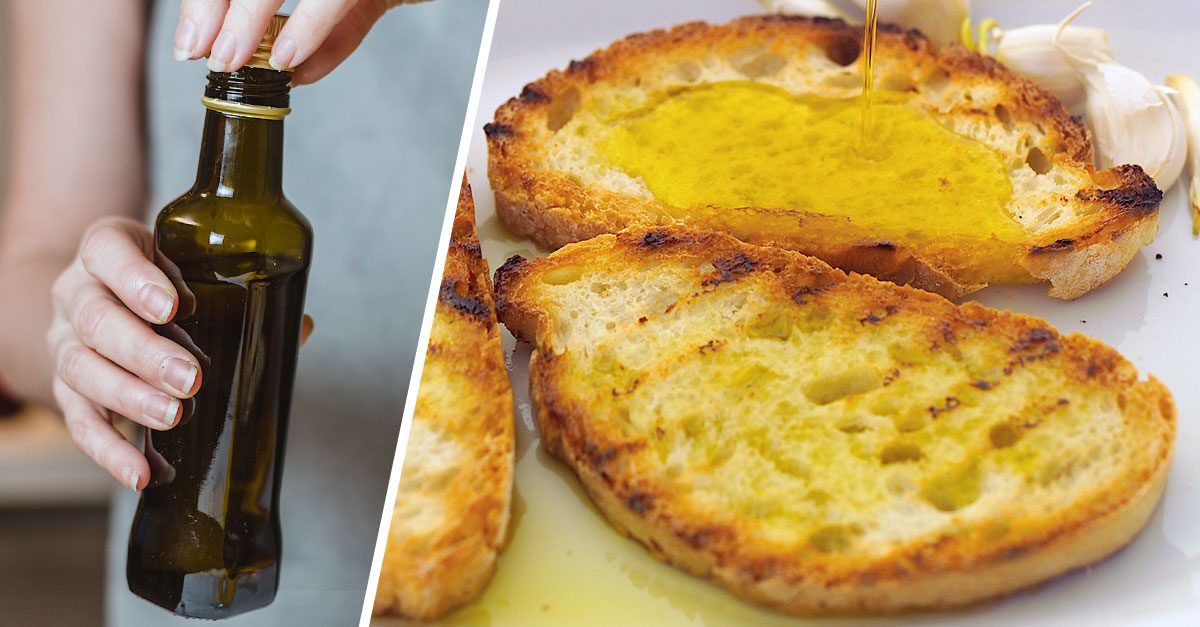When Is Olive Oil Healthier: When Consumed Raw or Cooked?
Olive oil has been used in cooking for thousands of years. It is the basis of a Mediterranean diet. It is a reliable cooking oil for health enthusiasts and those who want to cook healthy and lose weight. Its heart-healthy properties are well known to almost anyone who has read about dieting or searched for healthy eating recipes. Knowing its many health benefits and that it's usually used mostly in cooking, you must be wondering if it's healthier that way or if eating it raw makes it even healthier.
;Resize,width=742;)
Many health professionals recommend eating olive oil just by squeezing lemon juice in the morning – lemon is added to make the oil more delicious and to enhance the digestive system.
Contrary to what you may have heard, olive oil does not lose its health benefits or become unhealthy when heated. So why do some people believe that olive oil should not be used in cooking? Rumors persist that olive oil loses its health benefits when heated. This rumor is wrong. The reason is that the essential health benefit of olive oil is the composition of fat. Olive oil is mainly composed of monounsaturated fatty acids. Cooking with oil does not change the composition of fat.

The proportion of monounsaturated fatty acids in olive oil is the same both at high temperatures and after heating. According to the American Heart Association, unsaturated fats can help lower bad cholesterol levels in the blood and reduce the risk of heart disease and stroke. They also provide nutrients that support the development and maintenance of cells in your body.
The Food and Drug Administration (FDA) approved a health claim for olive oil in 2004 based on the monounsaturated fat contained in olive oil. When used in place of saturated fat, it may reduce the risk of coronary artery disease. Whether extra virgin or refined, heated or raw, all olive oils contain similar amounts of monounsaturated fatty acids.
So, Which is Actually Healthier?

Cooking oils can form small amounts of trans fat when heated. However, the concentration is negligible and is less than 1% even when heated for a long time. The main issue when comparing oils is oxidative stability. This is just enough for cooking oil to resist thermal decomposition and can lead to the formation of potentially harmful compounds.
Studies have shown that extra virgin olive oil is the most stable edible oil in the heat when it comes to producing polar compounds and is superior to edible oils with high smoke points.
One reason is that olive oil contains phenols and antioxidants that protect it from breaking down when heated. You may have heard that heat destroys phenol and should not be cooked in olive oil, but that is not true either.
The phenol contained in olive oil is indeed sensitive to heat. However, the 2015 study made remarkable discoveries. Cooking with extra virgin olive oil (EVOO) transfers phenol to food. EVOO fried potatoes contained more phenol and antioxidants than boiled potatoes.
In addition, a study in the 2020 University of Barcelona Journal Antioxidants confirmed that extra virgin olive oil retains significant levels of these healthy compounds during cooking. Also, it rarely exceeds the smoke point of olive oil when cooking. Cooking on the stove is usually not 350ºF. If you raise the burner too high or raise the oven to 450ºF, food, and oil will not reach that temperature.

As regards taste, the flavor compounds in olive oil are delicate and will evaporate when heated. Therefore, heating olive oil does not damage the health benefits, but it will make the olive oil lose some flavor. Some people consider this to be a good thing as they do not want their foods to taste like olive oil. However, if you have expensive olive oil with complex flavors, you may want to save it for finishing and cold uses.
In conclusion, olive oil is safe to be taken raw and to cook with – it does not compromise its health benefits or make it unhealthy. Therefore, you can be confident in using olive oil in all recipes.
;Resize,width=767;)
;Resize,width=712;)

;Resize,width=712;)
